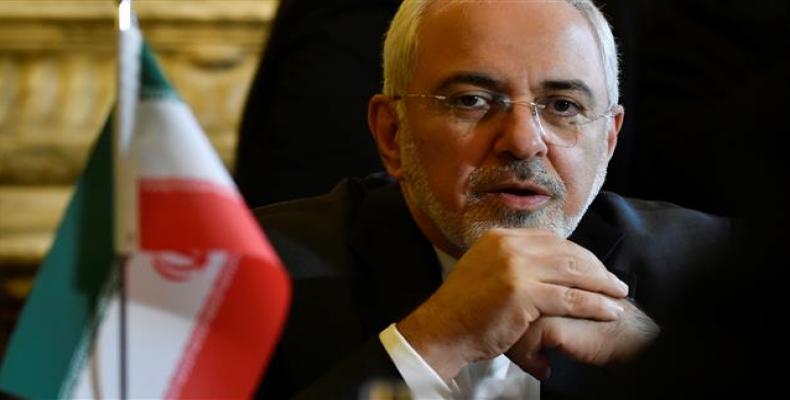Tehran, July 30 (RHC)-- Iran's Foreign Minister Mohammad Javad Zarif says the foreign ministry will not compromise on the country’s territorial integrity with anybody, including with regard to Iran's territorial waters.
Zarif made the remarks while addressing an open session of the Iranian parliament (Majlis) on Monday with regard to the Caspian Sea legal regime and Iran's share of the seabed and its resources.
“When it comes to Iran's territorial integrity and waters, we will stand on ceremony with nobody and will not negotiate with any party about honors Iran has gained during the past 40 years …. The administration is committed to this issue and the Majlis has the final say on it,” Iran's top diplomat told lawmakers.
Iran's foreign minister added that following the collapse of the former Soviet Union, Iran's diplomatic apparatus did its best to safeguard Iran's interests in the Caspian Sea, adding: “Although these negotiations have been very difficult, all our efforts were focused on protecting Iran's interests.”
“A glance at the history [of Iran] will show that parts of Iran were separated [from the country] under previous [monarchial] dynasties and it was only under the Islamic Republic that despite the imposed war [with Iraq] and tremendous pressures, not a handspan of the country’s soil has been lost and this is a great honor for Iran's leadership and people,” Zarif noted.
Iran's foreign minister also told lawmakers that necessary guarantees have been taken from other littoral states of the Caspian Sea not to make any decision on the sea’s legal regime in the absence of Iran, because “the issue of the Caspian Sea, unlike the issue of Arvand River between Iran and Iraq, is not a bilateral issue … and is covered by the agreement signed in 1975.”
Elsewhere in his remarks, Zarif noted that the convention on the legal status of the Caspian Sea was signed “with open eyes” by leaders of the five littoral states on August 12, 2018, adding that Iran will never compromise on its interests on the basis of mere trust in other countries.
The Caspian Sea convention was signed by Iranian President Hassan Rouhani and his counterparts from Russia, Azerbaijan, Kazakhstan, and Turkmenistan, Vladimir Putin, Ilham Aliyev, Nursultan Nazarbayev and Gurbanguly Berdymukhamedov, respectively, after the 5th Caspian Summit in the Kazakh port city of Aktau.
The Caspian Sea convention is drawn up in 24 articles with the most important highlights being a ban on military presence of all foreign countries in the sea and transit of military consignments belonging to foreign countries.
The convention emphasizes that the Caspian Sea belongs to all littoral states, prohibiting establishment and handing over of any kind of military bases to foreign countries. The Caspian Sea Legal Regime Convention also puts emphasis on sovereignty and sovereign rights of the littoral states while recognizing their right to decide on the sea.
On August 14, Secretary General of the United Nations Antonio Guterres welcomed the signing of the deal on the legal status of the Caspian Sea by its five littoral states, saying it shows the importance of regional cooperation.
"The Secretary-General welcomes the signing of the Convention on the Legal Status of the Caspian Sea by Azerbaijan, Iran, Kazakhstan, Russia and Turkmenistan," the spokesman for the UN chief said in a statement.


